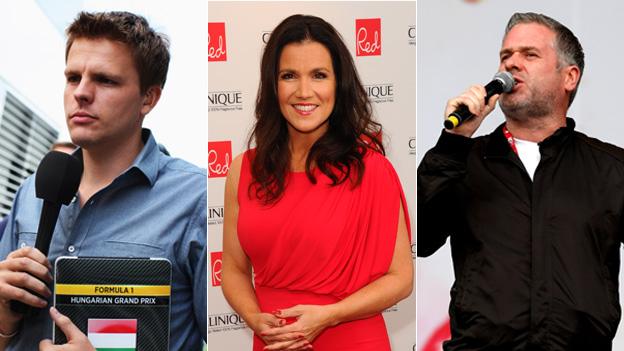BBC urged to name stars who earn more than the PM
- Published
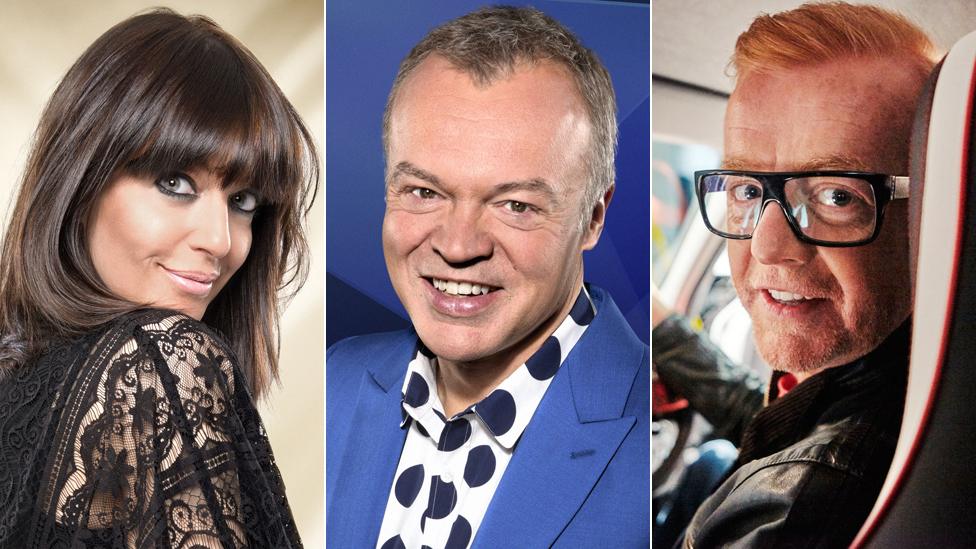
Claudia Winkleman, Graham Norton and Chris Evans are among the BBC's top stars
The BBC should name its stars who earn more than the prime minister, a committee of MPs has said.
The corporation is planning to identify those who earn more than £450,000.
But the House of Commons Culture, Media and Sport Committee said there was no reason not to publish details of those who get more than £143,000 a year.
The BBC said that would allow commercial broadcasters to poach its stars, which "wouldn't be in the interests of licence fee payers".
Currently, the BBC reveals the salary details of executives who earn more than £150,000 per year.
In May, a government white paper on the future of the corporation recommended revealing which performers and presenters get more than £450,000, which would affect names including Chris Evans, Gary Lineker and Graham Norton.
'Secret knowledge'
The select committee's acting chairman, Conservative MP Damian Collins, said: "There will be agents, managers, headhunters who will know very well what different people are being paid.
"That's part of the secret knowledge that people within the industry have but it's not shared by licence fee payers - the people that provide the money in the first place," he told BBC's Today programme.
Transparency on pay was "a helpful tool to keep in control of pay costs", he said, and pointed out that it was standard practice in public bodies to declare pay packages above the prime minister's £143,000 annual salary.
The BBC had made an "important step" in declaring the packages of executives on more than £150,000, but that should be extended to every employee.
"I don't think licence fee payers distinguish between a salary paid to an executive, and that paid to a presenter or broadcaster," he said.
In response, a BBC statement said it has "led the way in transparency by publishing details of senior manager salaries over £150,000".
It continued: "We cut our bill for talent pay by £8m last year, but creating a poacher's charter by publishing the salaries of individual presenters and actors wouldn't be in the interests of licence fee payers who say they want the best talent on the BBC."
Scottish Six O'Clock News?
Elsewhere in its report, the committee has also called for a separate Six O'Clock TV news for Scotland, which would be made in Scotland with a Scottish audience in mind.
The BBC has been looking at the idea following concern that, following devolution, many so-called national stories relate only to England.
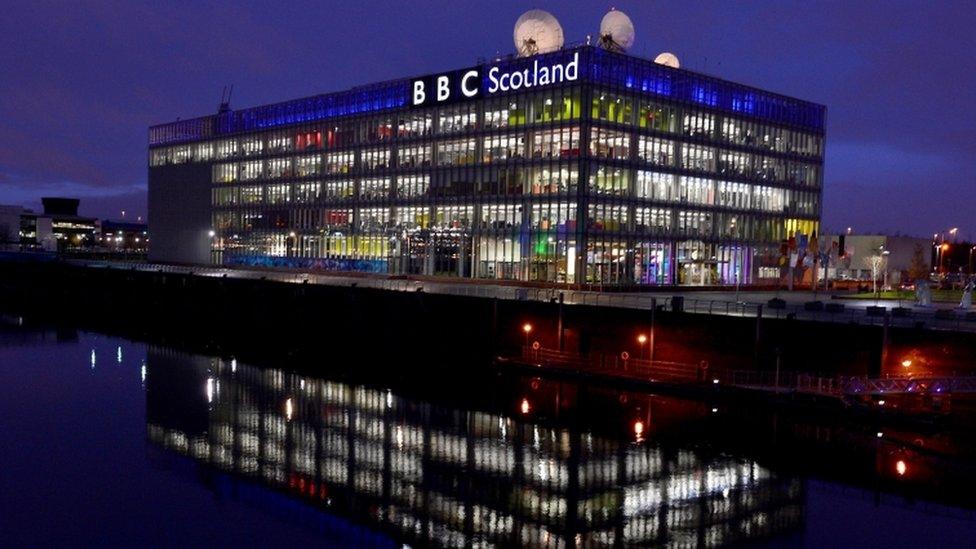
The idea of a Scottish Six has been a long running question in Scotland
Mr Collins said: "We believe that it is perfectly reasonable for editorial decisions on the running order for television news broadcasts in Scotland to be made in Scotland, and broadcast from Scotland, as they are already for radio."
The BBC spokesperson said it was "continuing to test a number of options as part of our ongoing review into our news services".
The statement said: "Ultimately our main aim is to provide the best news offer possible and that is why we're exploring a number of possible formats."
'Serious concerns'
Meanwhile, the committee voiced "serious concerns" over the appointment of the new BBC unitary board, including the way chairwoman Rona Fairhead was "reappointed", external without a recruitment process.
Mr Collins said Mrs Fairhead, current chairwoman of the BBC Trust, "may well be the best person" for the job, but there was still time to have a proper process to consider other candidates.
He said the role would be "pivotal" and the chair would play an important part in deciding who else would be on the board.
A BBC Trust spokesperson said that decision was made by the then prime minister and culture secretary, who believed "it was important that the process ran smoothly, with the chairman to provide continuity".
- Published2 August 2016

- Published1 August 2016
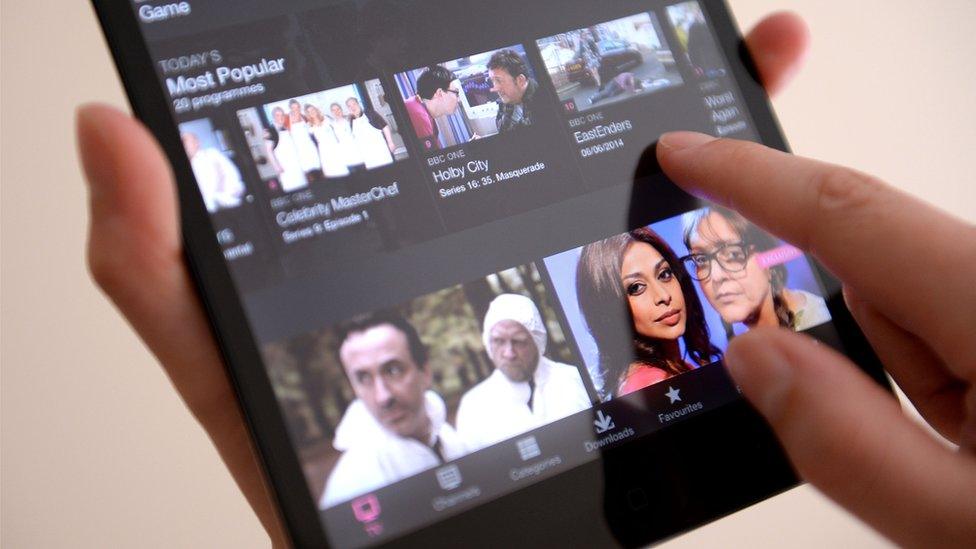
- Published12 May 2016
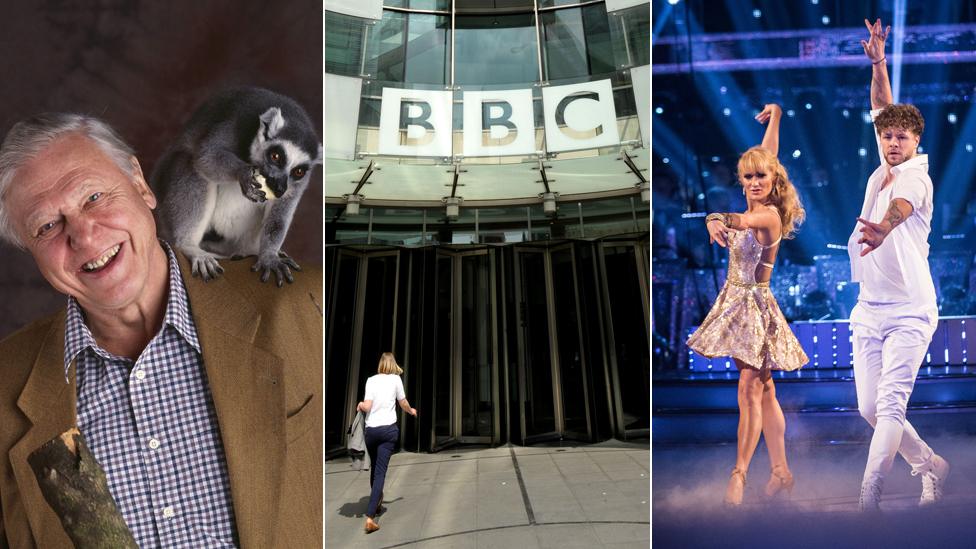
- Published4 March 2015
